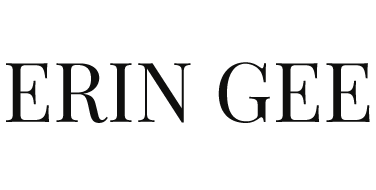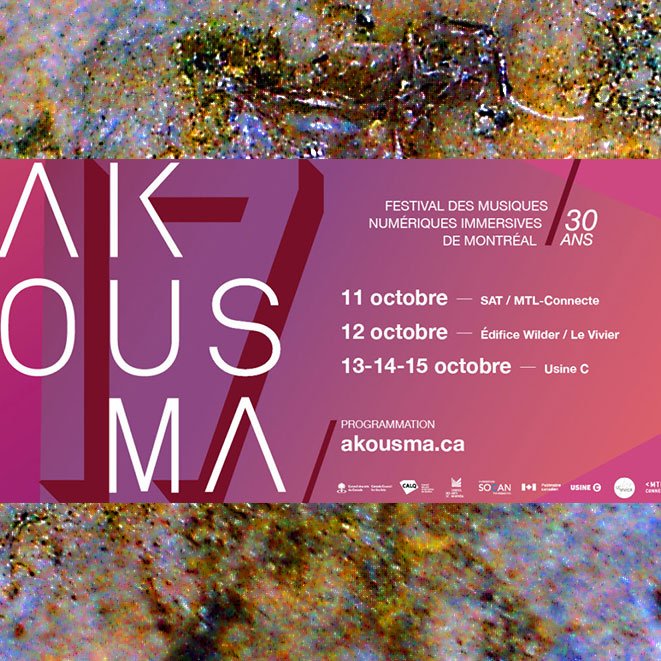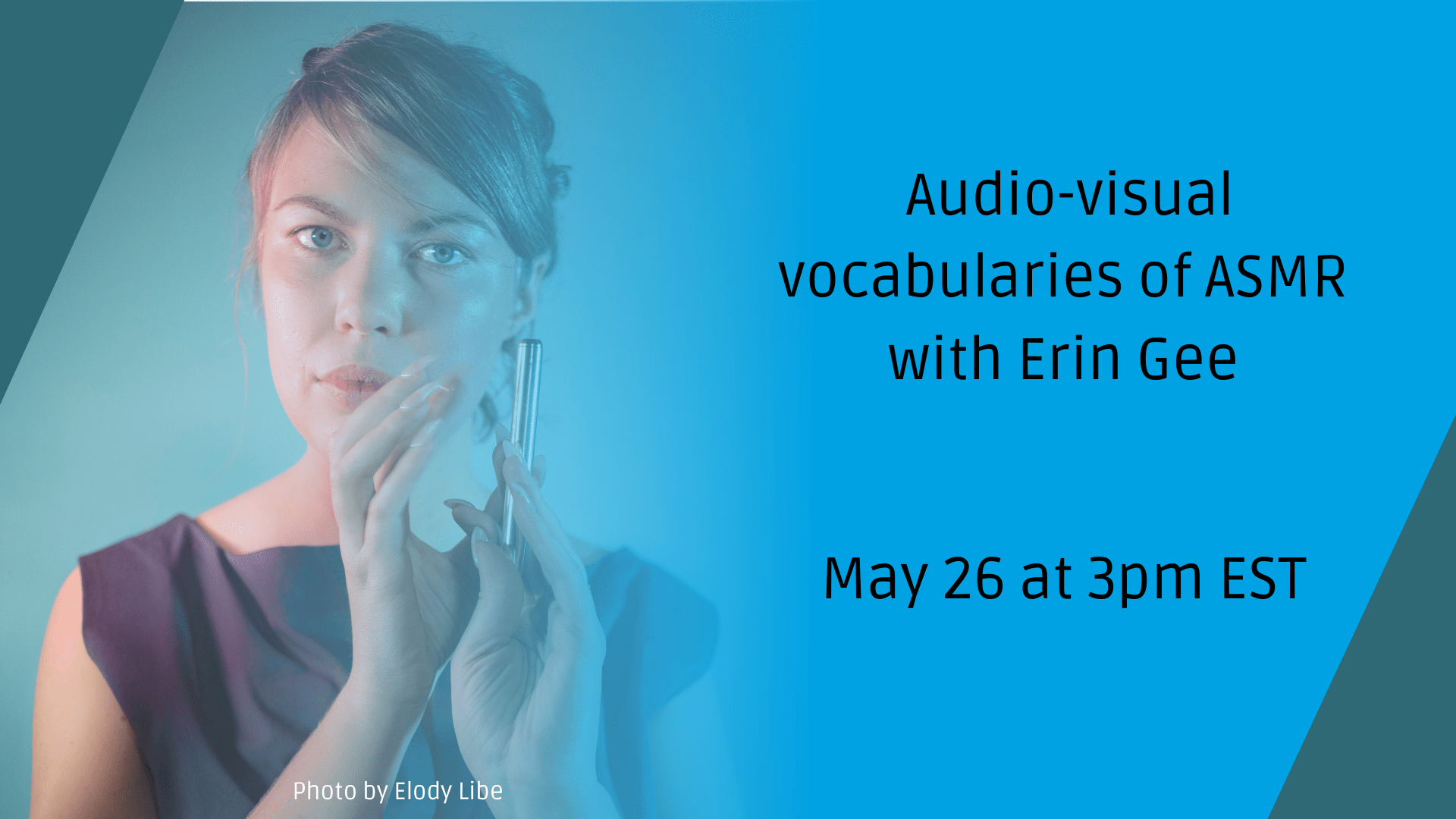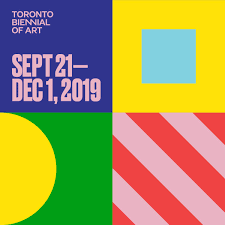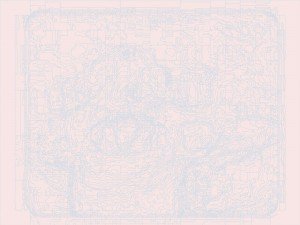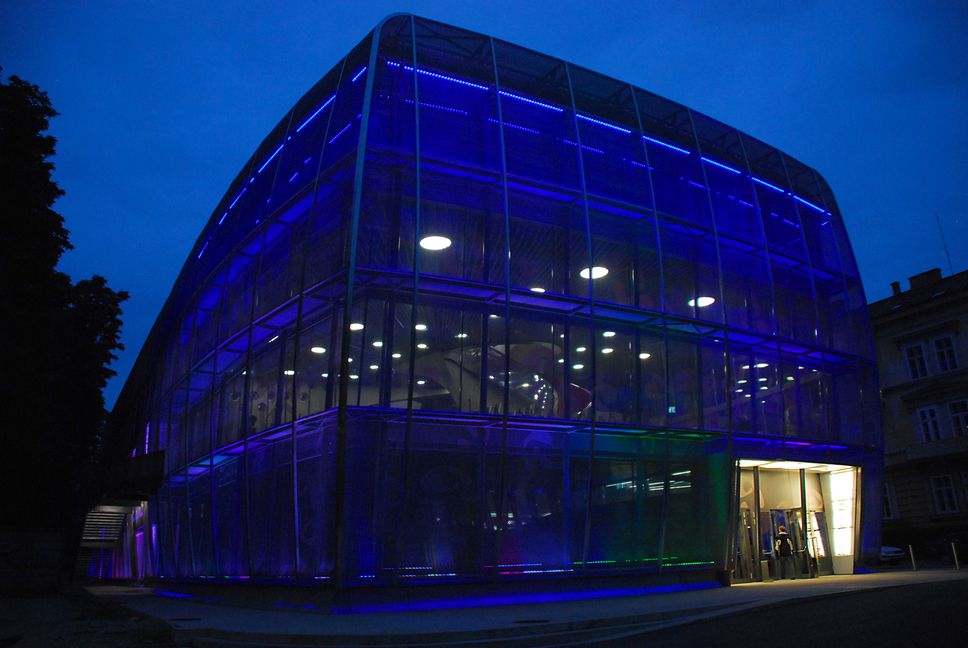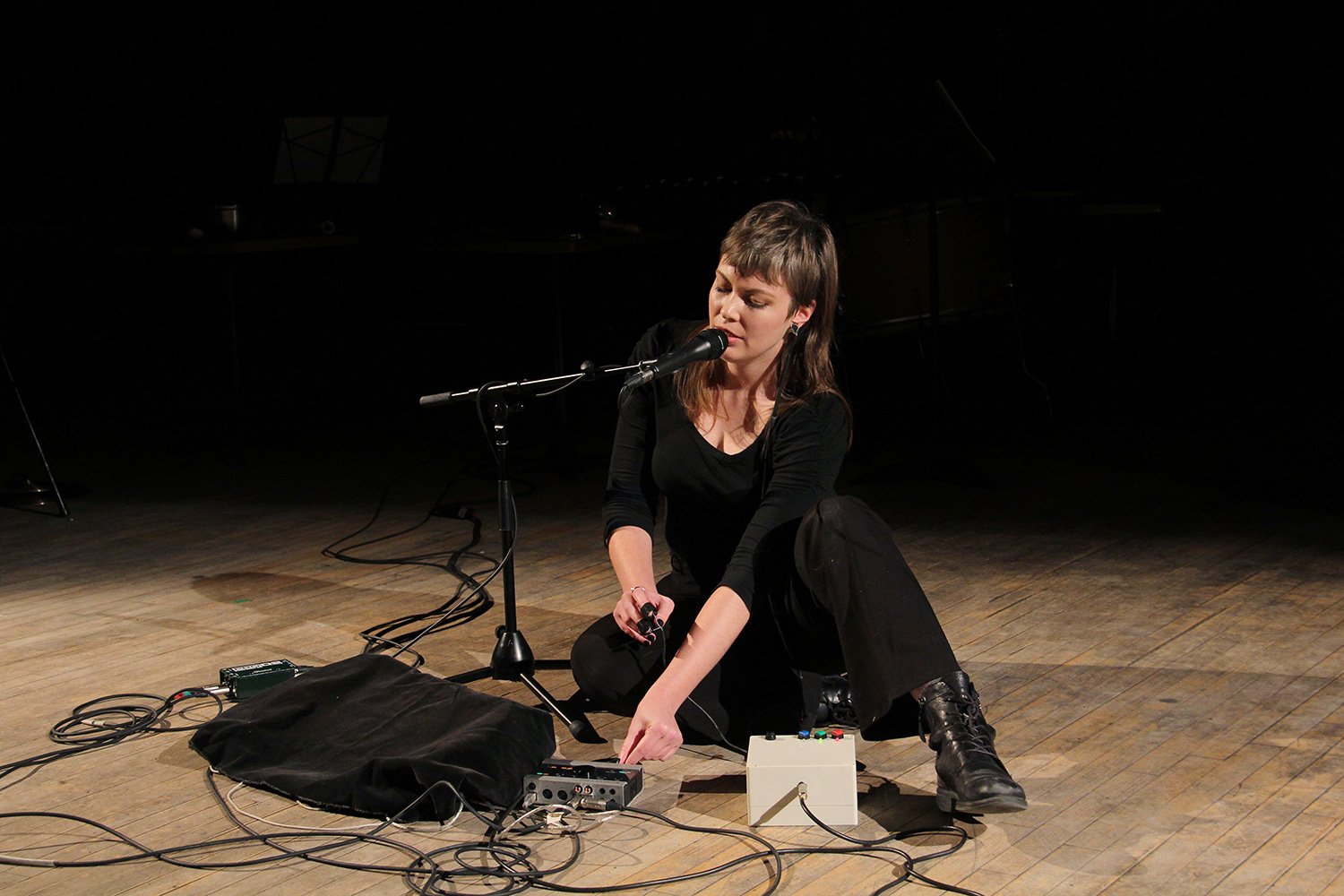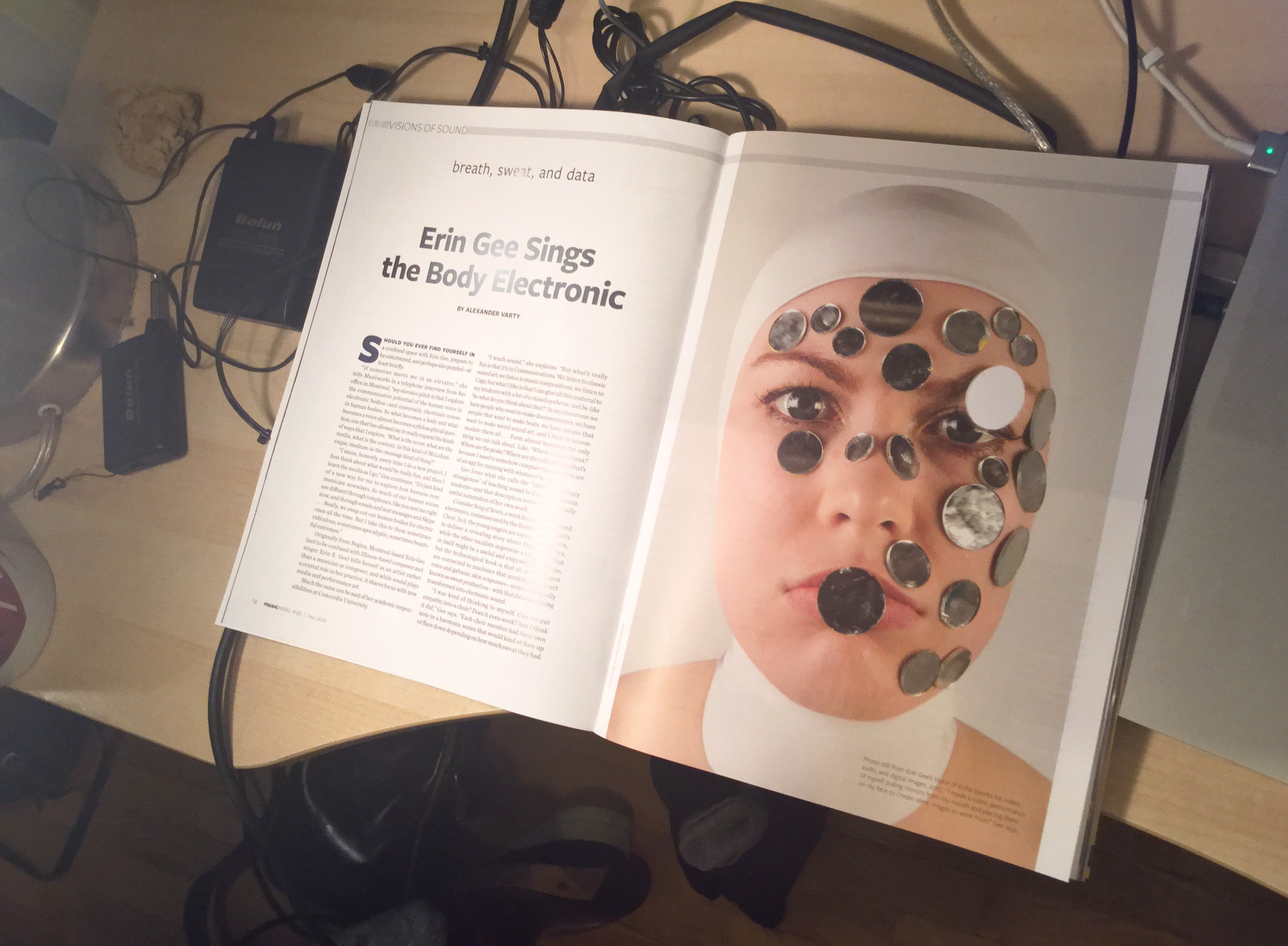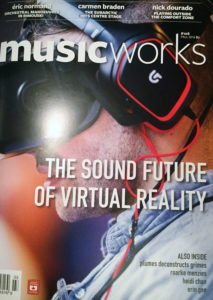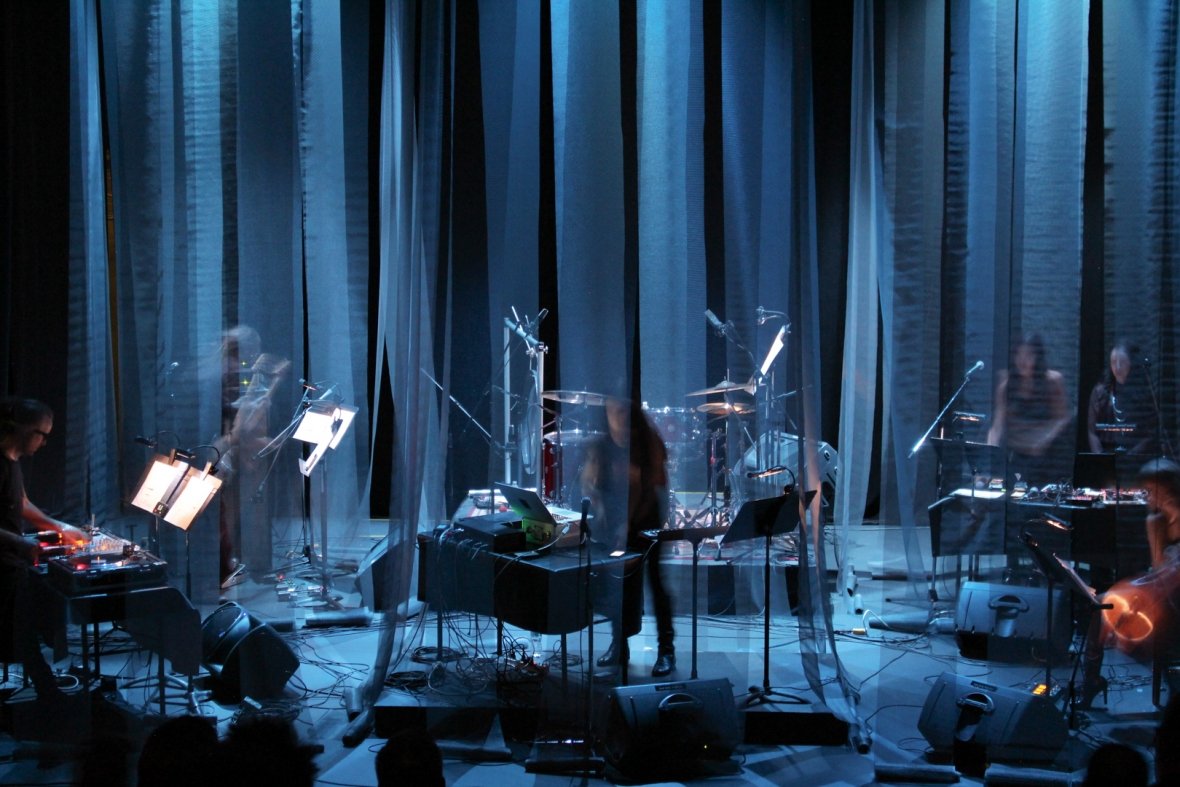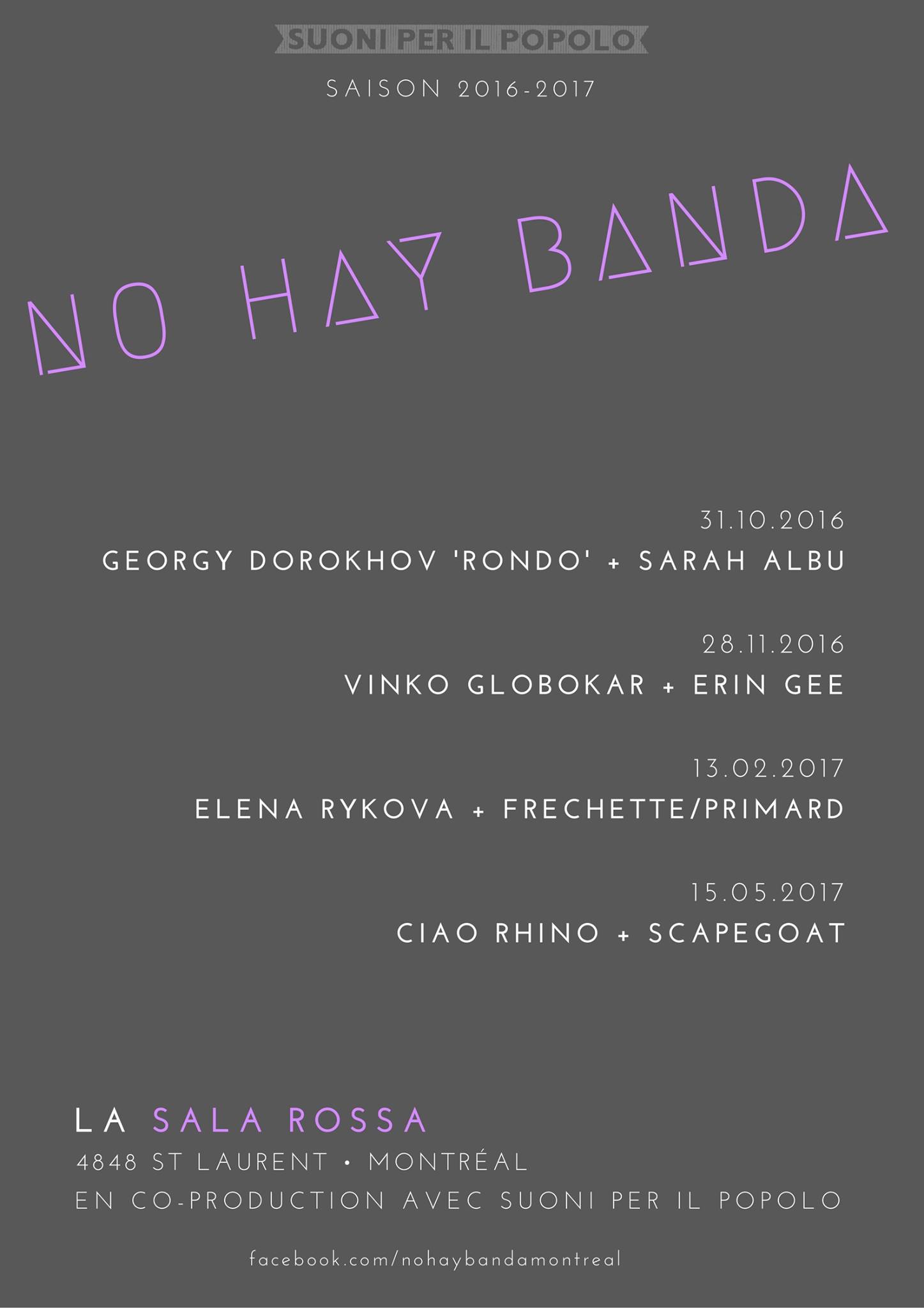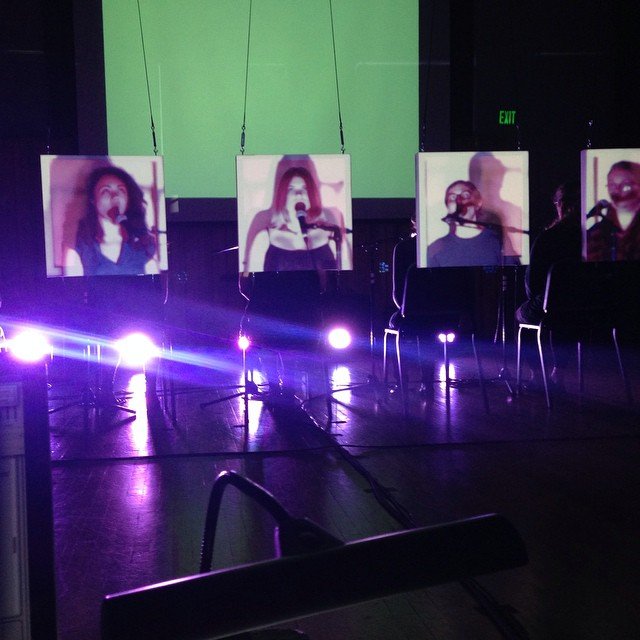Akousma Montreal
I am thrilled to present the world premiere of my ASMRtronica work We as Waves (2020) as part of the 30th anniversary Akousma Festival in Montreal, Canada. The programming features an exciting collection of composers that I am happy to be presenting my work alongside.
Mélanie Frisoli / Frédéric Auger / Roger-Tellier Craig
Hugo Tremblay / Rouzbeh Shadpey / Erin Gee
– 14 octobre 2021 – USINE C // 7pm
ABOUT AKOUSMA –
Composers Jean-François Denis, Gilles Gobeil, and Robert Normandeau founded Akousma in Montréal in 1991 as a concert production company that showcases works by electroacoustic artists and collectives in Montréal. These works are presented via an immersive sound system, and they take several forms: acousmatic (tape music), mixed (tape and instruments), live (live electronics), video music, or music integrated into other art forms such as dance, performance, or installation.
